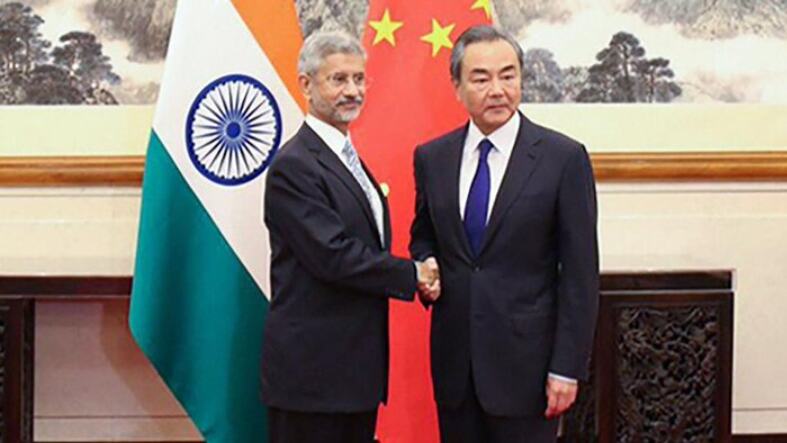Walking the tightrope

External Affairs Minister S Jaishankar negated the statement of Chief of Defence Staff's reiteration of Samuel Huntington's principle of clash of civilisation theory while explaining China's growing rapport with Islamic nations vis-à-vis the West. Jaishankar's outright denial of India subscribing to any clash of civilisations theory at Dushanbe appears to be reflective of India's effort to build a broad-based consensus in the geopolitical landscape rather than looking at nations as adversaries. It is important to look at the SCO meet in the context of the upcoming Quad summit. The fact that India is meeting two contradictory groups in such a short interval of time may partly explain the balancing posture taken by the minister. While Quad is a pro-NATO group focussing on rules-based order in the Indo-Pacific and primarily countering China's aggressiveness, SCO is a forum where China is not just an important member but has also improved its ties to a great extent with the other like-minded members. This situation translates into a tough challenge of maintaining a balance for India between Quad and SCO, more specifically between the US and China. Though tough, the task is achievable as it is gradually becoming a norm among nations to align with a varied set of blocs and countries in pursuance of their national interests. It was visible recently during the Taliban takeover of Afghanistan when the United States turned towards countries like Pakistan, Afghanistan and Uzbekistan for resolution of Afghan turmoil, leaving India side-lined. The Afghanistan episode, it seems, has given fresh lessons to India in terms of overdependence on a major nation like the US, and complete ignorance of the players whom it saw as hostile to its ideological stand. The External Affairs Minister has now come to understand the nature of the multi-polar globalised world in a much better manner. The geopolitics of all the nations are interrelated to each other, and the process of decision-making around global issues is carried out efficiently only through consensus. So, countries that have good relations with most of the other countries, have the advantage of pushing forward their concerns more efficiently at the global stage. It is a welcome sign that India seems to be adopting a path of peace rather than war. Peace, however, is a language of strength. India's bid for peaceful resolution of conflict with China has to be backed by strategic finesse and firmness. S Jaishankar also talked about Asian solidarity being dependent on the example set by India-China relations, which is largely missing at present as both the nations are at loggerheads with each other. It is a fact that the present state of affairs in the region is not so conducive towards Asian solidarity. History is witness that China has not responded well to India's quest for peace over the time. The country has tried to establish dominance over India on each possible occasion. Even as the External Affairs Minister said that China should not view its relationship with India through the lens of other countries, one can't ignore that China has been strategically trying to counter India by using the territories of other neighbouring nations. It is in this context that General Bipin Rawat's theory cannot be ignored completely. Peaceful resolution of the conflict between India and China is possible only if all the harsh realities are accepted and countered with strength. Furthermore, the denial of clash of civilisations theory is being read in two possible contexts — it may be a statement for China that it should not see India-US relations as an obstructing factor in the Sino-India ties, or it can also mean that China's bonhomie with the Taliban-led Afghanistan should be framed as countering Indian interests. Eventually, it can be said that India is on the right track as it reiterates the approach of reconciliation rather than confrontation. India chose peace over war but, as peace is the language of empowered and emboldened, the country should back its quest for peace with strategic finesse. Diplomatically, S Jaishankar's statement at the sidelines of the SCO meet, to offer a balancing approach before the Prime Minister flies to Washington to address the Quad summit, appears to be a calculated move.



